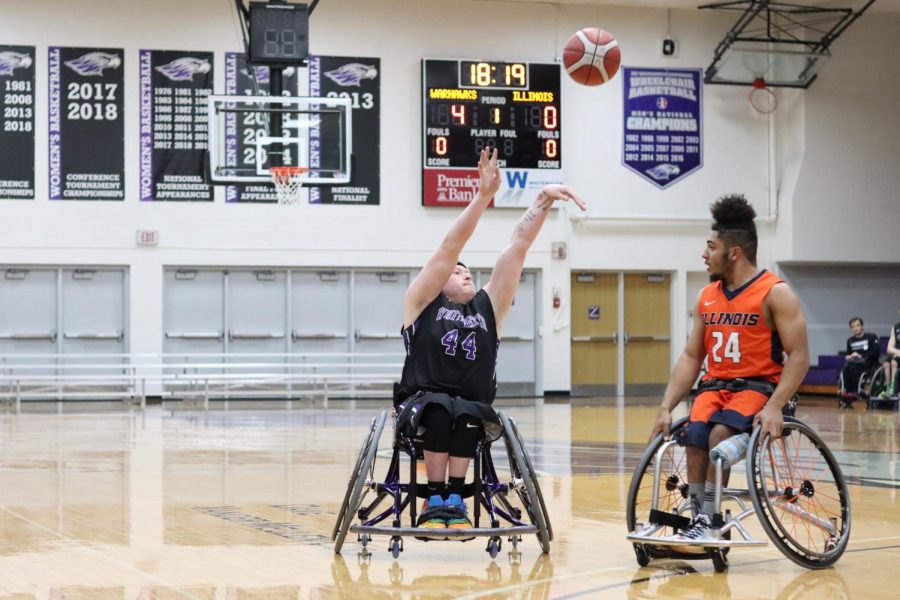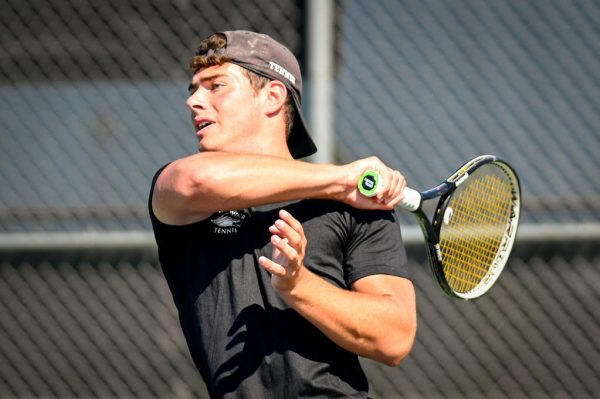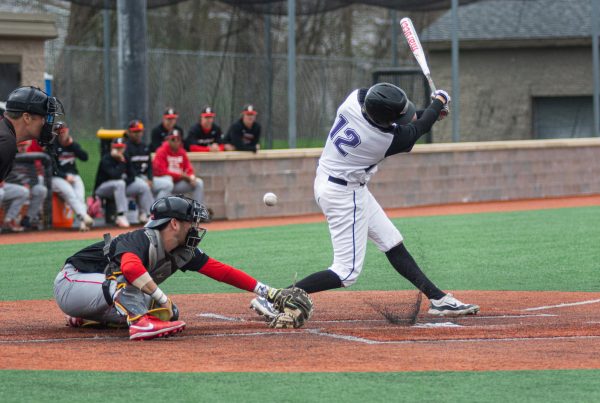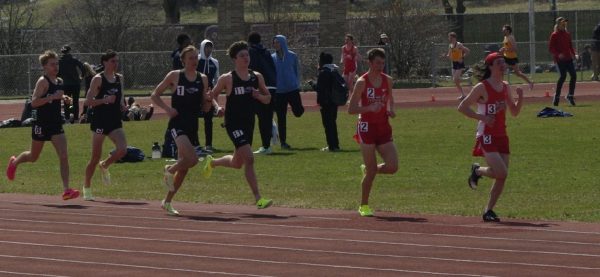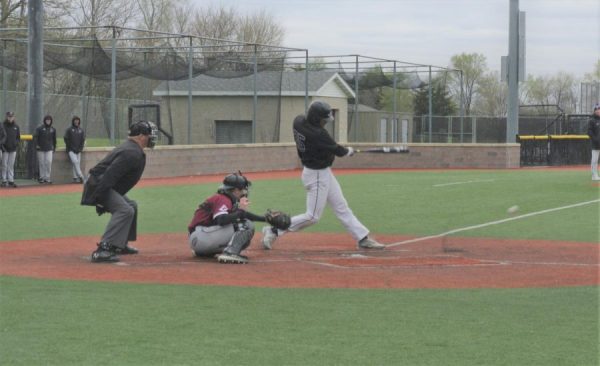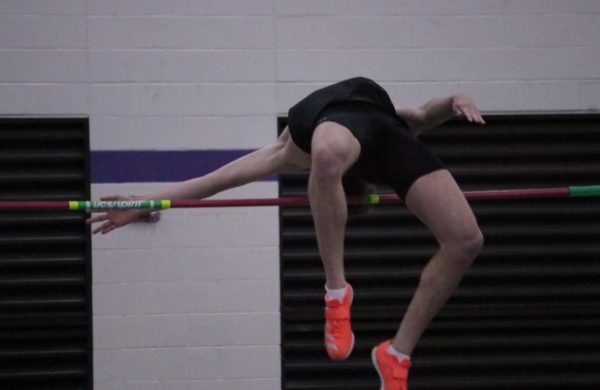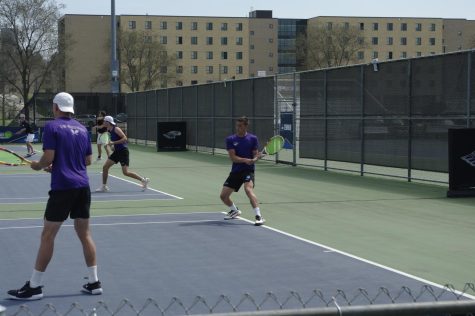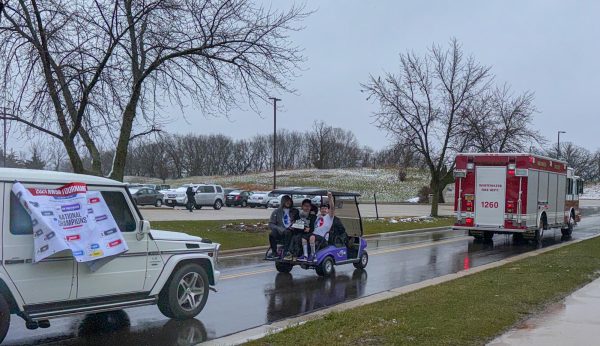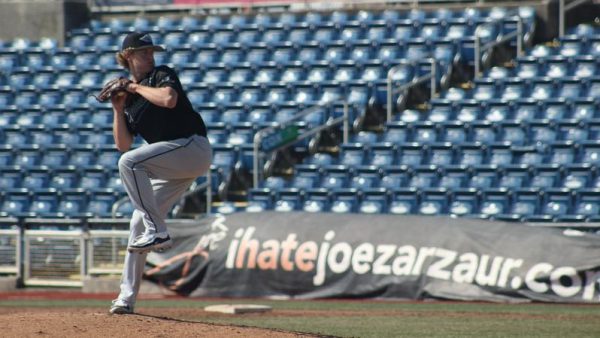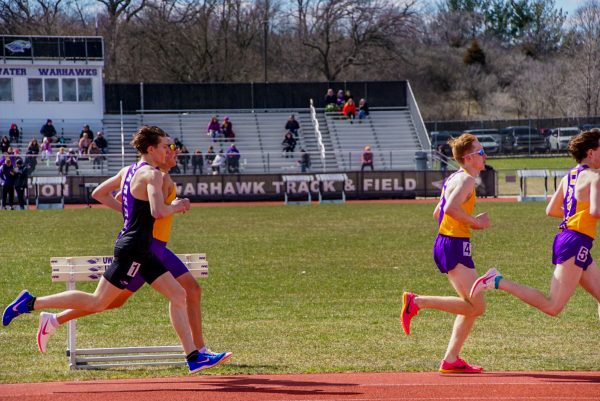Wheelchair Basketball wins big at home tournament
Jeromie Meyer takes a 3-point shot early in the first half against Illinois.
December 2, 2019
It was a simple basketball play, a drive and kick to the top of the key. But as the shooter, Jeromie Meyer, took his shot, he clearly rolled over the 3-point line. In able-bodied basketball, the shot would’ve counted for two, but it’s not that simple. This is Wheelchair basketball.
Meyer, better known on the team as Rome, was one of the key cogs in the Warhawk Wheelchair Basketball program that went 4-1 in their home tournament, which took place on November 22 and 23.
“The guy shoots lights-out. He rarely misses,” said teammate Brian “Bingo” Wofford, who was the leading scorer in the team’s primetime victory over Illinois, which was the marquee game of the tournament.
“In front of a crowd that was pretty excited to see us play, we definitely bounced back and did some things better,” said head coach Jeremy Lade after his team won 73-58 over the Illini.
Since wheelchair basketball doesn’t abide by the NCAA Divisions, the Warhawks played schools such as the Illini, as well as the University of Texas-Arlington, and Alabama, all of which offer full-ride scholarships, which Whitewater doesn’t. This makes for some unique matchups.
“Whitewater and Illinois have had a rivalry for wheelchair basketball for as long as I’ve been a part of wheelchair basketball, 20-plus years,” said Illinois head coach Matt Buchi. “Illinois orange and blue battling purple, that’s just the way it goes. We get hyped up for this game no matter what.”
The game got off to a tight start, and featured a lightning-quick pace with plenty of transition baskets. Illinois played a full-court press, trapping the Warhawks ball handlers in their own half.
However, the Warhawks used stellar pick-and-roll defense to stifle Illini shooters.
“Our defense stayed consistent with the gameplan, and we knew what shots we wanted to give up,” said Lade, who is in his 11th year as head coach.
“They also had a good gameplan, They knew we were going to bring pressure at their 3-point line, so they tried to pick that pressure, which forced our defense to be able to rotate and help.”
Coming out of halftime, the game resumed at an even higher tempo, with turnovers and open shots in the paint. Whitewater solidified their press-break, and were often able to get into their halfcourt plays.
Lade said, “They have a lot of team speed, and they wanted to utilize that team speed to kind of counteract some of our height. We had some big boys trying to get the ball in the paint, so while we’re trying to take it down to a halfcourt set on offense, they’re trying to force us to play in the full court, to play towards their strength.”
One of the keys was Wofford, who used his size advantage to score in the low post. Since height isn’t a huge factor in wheelchair basketball, Wofford’s long arms gave him a rebounding advantage, which he leveraged enough to be the top scorer.
As the clock ticked away, Illinois couldn’t sustain their intensity, and the Warhawk bigs found themselves more open. In the 3rd quarter, they used a 10-0 run to make the score 55-45, and they didn’t look back. The final score ended 73-58 in favor of the Warhawks.
Buchi said, “The teams that we played earlier didn’t have the same size that Whitewater had. They usually had one big and that big was usually a ball handler. What’s really great about Whitewater is that they’ve got multiple bigs and they’ve got ball handlers that are small.”

